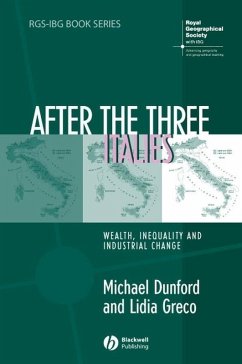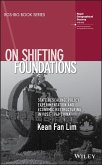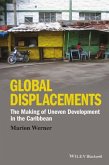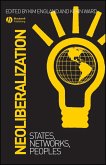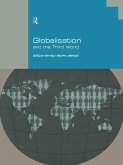After the Three Italies develops a new political economy approach to the analysis of comparative regional development and the territorial division of labour and exemplifies it through an up-to-date account of Italian industrial change and regional economic performance. * Responds to recent theoretical debates in economic geography, involving economists, geographers and planners. * Builds the foundations for a new theoretical approach to regional economic development and the territorial division of labour. * Draws on the results of a recent ESRC funded research project, as well as on a large range of official data sets. * Provides an up-to-date picture of Italy's economic performance and of its recent development relative to other European countries and the rest of the world. * Analyses Italy's internal differentiation and its persistent regional inequalities. * Examines the regional impact of the recent evolution of the car, chemicals, steel and clothing industries. * Leads to a new and more complex picture of Italian development.
Dieser Download kann aus rechtlichen Gründen nur mit Rechnungsadresse in A, B, BG, CY, CZ, D, DK, EW, E, FIN, F, GR, HR, H, IRL, I, LT, L, LR, M, NL, PL, P, R, S, SLO, SK ausgeliefert werden.
"In their analytically original study, Dunford and Greco show thatItaly today is divided predominantly into two regions (north andsouth) and that the development path of each region mustnecessarily be understood in relation to that of the other. Thesefindings have major significance for political-economic geographywell beyond the Italian case."
--John Agnew, University of California, LosAngeles
"A welcome and detailed dissection of the changing geography ofeconomic growth and decline in Italy, that demonstrates theimportance and theoretical value of understanding the dynamicmicro-foundations of regional economic change."
--Professor Peter Sunley, School of Geography, University ofSouthampton
"The book is, in sum a good example of theoretically informedempirical research in economic geography, which is aware of andinspired by but also not unconditionally adhering to the dominanttheories and approaches in the discipline ... The book by Dunford& Greco is one of these attempts aiming to bring togetherempirical analysis of regional economies and the social critique ofglobal capitalism. The authors have accomplished this difficulttask in a brilliant way and for this reason their book isultimately recommended reading not only to those interested inissues of regional development in Southern Europe but moregenerally to all practitioners of economic geography and relateddisciplines."
--Royal Dutch Geographical Society
--John Agnew, University of California, LosAngeles
"A welcome and detailed dissection of the changing geography ofeconomic growth and decline in Italy, that demonstrates theimportance and theoretical value of understanding the dynamicmicro-foundations of regional economic change."
--Professor Peter Sunley, School of Geography, University ofSouthampton
"The book is, in sum a good example of theoretically informedempirical research in economic geography, which is aware of andinspired by but also not unconditionally adhering to the dominanttheories and approaches in the discipline ... The book by Dunford& Greco is one of these attempts aiming to bring togetherempirical analysis of regional economies and the social critique ofglobal capitalism. The authors have accomplished this difficulttask in a brilliant way and for this reason their book isultimately recommended reading not only to those interested inissues of regional development in Southern Europe but moregenerally to all practitioners of economic geography and relateddisciplines."
--Royal Dutch Geographical Society

